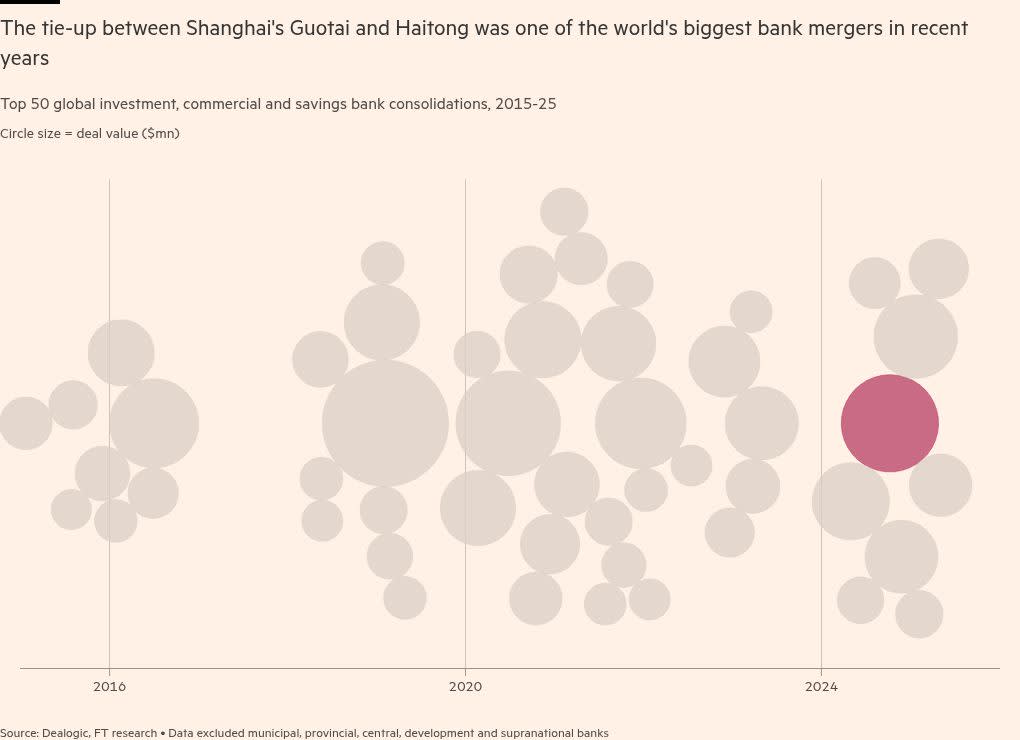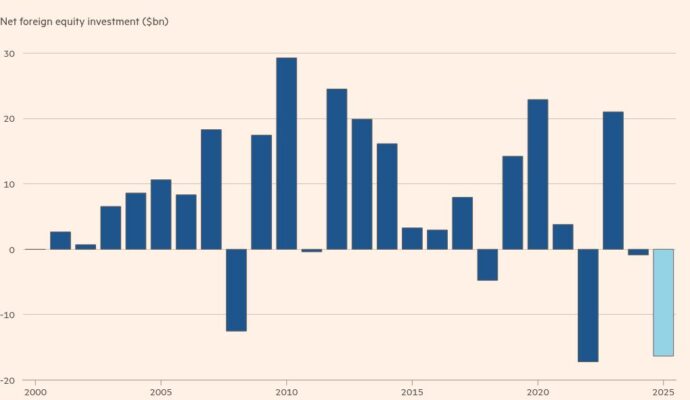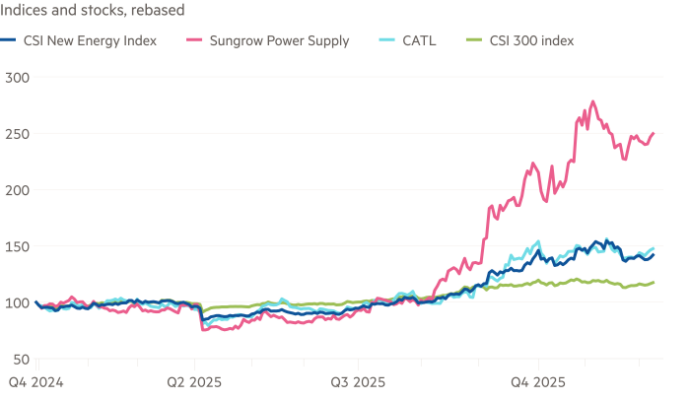Stay informed with free updates
Simply sign up to the Chinese business & finance myFT Digest — delivered directly to your inbox.
China is accelerating efforts to build a series of giant banks and brokerages as it pushes to consolidate the financial sector and make it better able to weather economic shocks.
Nearly one in 20 of the country’s rural banks have shut their doors over the past year, according to data from China’s National Financial Regulatory Administration, in a sweeping revamp of the banking sector in the aftermath of a years-long property crisis.
In separate data compiled by S&P Global Ratings, mergers have taken place or are under way at Chinese securities companies managing more than one-fifth of the sector’s assets since late 2023.
The consolidation campaign aims to transform China’s historically fragmented financial sector and produce a few strong, dynamic companies that can compete with the likes of JPMorgan and Morgan Stanley.
President Xi Jinping has previously urged regulators to “cultivate a few top-ranked investment banks and investment entities . . . to enhance the effectiveness of financial services for the real economy”. Last month, theChina Securities Regulatory Commission reiterated the need to “enhance core competitiveness of top-tier investment banks via merger and acquisitions”.
A system with more big banks and brokerages would help “shape China’s financial policies in the long period of economic transitions that lies ahead . . . and can help de-risking the system in the process”, said George Magnus, an associate at Oxford university’s China Centre.
The accelerated pace of mergers reflects the authorities’ belief that they have removed the worst risks from the financial system and can now get it in shape to support China’s growth.
“This is likely to be a decade-long process rather than a couple of years,” said Ryan Tsang, managing director at S&P Global Ratings, noting that the process was probably only halfway complete. “The key is not just about reducing the number of institutions, but also strengthening their ability to manage risk.”
In recent years, Beijing has sought to reduce risk in a hugely overleveraged financial system by closing insolvent rural banks, cracking down on indebted property developers such as Evergrande and pushing local governments to restructure their debt.
As a result, “China’s financial system is now at its most stable point in the past decade,” said Richard Xu, financial analyst at Morgan Stanley. “The timing seems right to push to further streamline the sector and improve efficiency.”
In 2025, analysts expect more consolidation among state-owned brokerages, trust companies and financial leasing groups, as policymakers seek to create leaner and more competitive financial institutions.
After years of credit-driven growth, authorities are trying to reshape the economy. As part of this, they want to reduce the number of banks. China’s 3,603 rural banks make up nearly 95 per cent of the country’s lenders, yet manage just 13.3 per cent of its total assets.
Brokerages, hit by a collapse in deal flows, have also been affected. “We might see broader shake-ups involving multiple brokerages under the umbrella of same-state asset managers,” said Karen Wu, an analyst at CreditSights in Singapore.
In Shanghai, which is home to six state-owned brokerages overseen by the local state-owned asset manager SASAC, regulators are pushing for a tie-up between two of China’s oldest investment banks, Guotai Junan and Haitong Securities, according to public announcements and company filings.
As Beijing reshapes its institutions to navigate a more volatile global economy, analysts also anticipate greater input from Beijing into banking decisions, such as international lending, restructuring of debt in Belt and Road countries and use of the renminbi.
“In all of these functions, Chinese finance is going to cross swords with the US financial establishment, and so from China’s perspective it makes sense, defensively, to empower, enlarge and rationalise China’s finance industry,” said Magnus.




